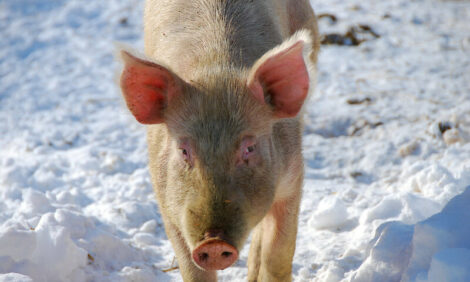



Five common problems encountered with pet pigs
Around the world pigs have become popular pets but, as with raising any animal, rearing pigs comes with its own challenges.In most instances, domestic swine species are found in food production systems, bred and reared for consumption. However, some pigs have found their way into our homes along with their canine and feline friends.
The most common breed of hog kept indoors is the pot-bellied pig. Other breeds of pet-sized pigs include the Kune Kune, Juliana, African Pygmy, Ossabaw, Yucutan, Gottingen mini-pig, and the American Landrace.
Intelligent creatures, pigs of all sizes require dedication as boredom can lead to stress-related behaviour, such as tail-biting and aggression. Pigs are also keen explorers and natural rooting behaviours can result in destruction of furniture and gardens alike.
Pigs have proven to be loyal companions and can be housebroken but there are certain factors that must be considered when bringing a pet pig home.
Size
Most owners will buy pet breed pigs when they are much smaller than their final weight and dimensions. Sometimes buyers may be sold a breed different to the one they think they are getting. There are examples abound of well-meaning, pig-loving people buying a ‘mini pig’ when it is 1.5 kilograms, and having it grow within a year or two to a whopping 227 kilograms. Previous research and knowledge into the various small breed pigs are vital. Many full-sized pigs kept as pets end up euthanised or in shelters.
Aggression and behaviour problems
Spaying or neutering of a pet pig is important. At sexual maturity, the boars particularly can become aggressive. Pregnant sows will also fight to protect their territory – whether that is your living room, your garage or an outdoor pen. Most behavioural problems are preventable, however, it is reliant on the owner being able to understand the unique needs of a pet pig.
Bylaw
Some urban areas allow pigs for pets, and others have strict bylaws against any animal even resembling a farmyard species. Full knowledge of the laws is essential. Pet pigs may be taken away by animal control – never to be returned.
Feeding
Obese pigs can develop a number of weight-related conditions such as arthritis. Underfeeding pigs is also a problem. Additionally, what to feed a pet pig is not always known by new owners. The best kind of feed for pet pigs is food created for their breed. As with dogs and cats, there are pet pig foods available for a range of life stages.
Dog attacks
Loose dogs may attack pet pigs, it is their instinct. Pet pig owners need to create a fence to keep dogs out and pigs in – for the safety of all animals – when you are not present to monitor behaviour.









